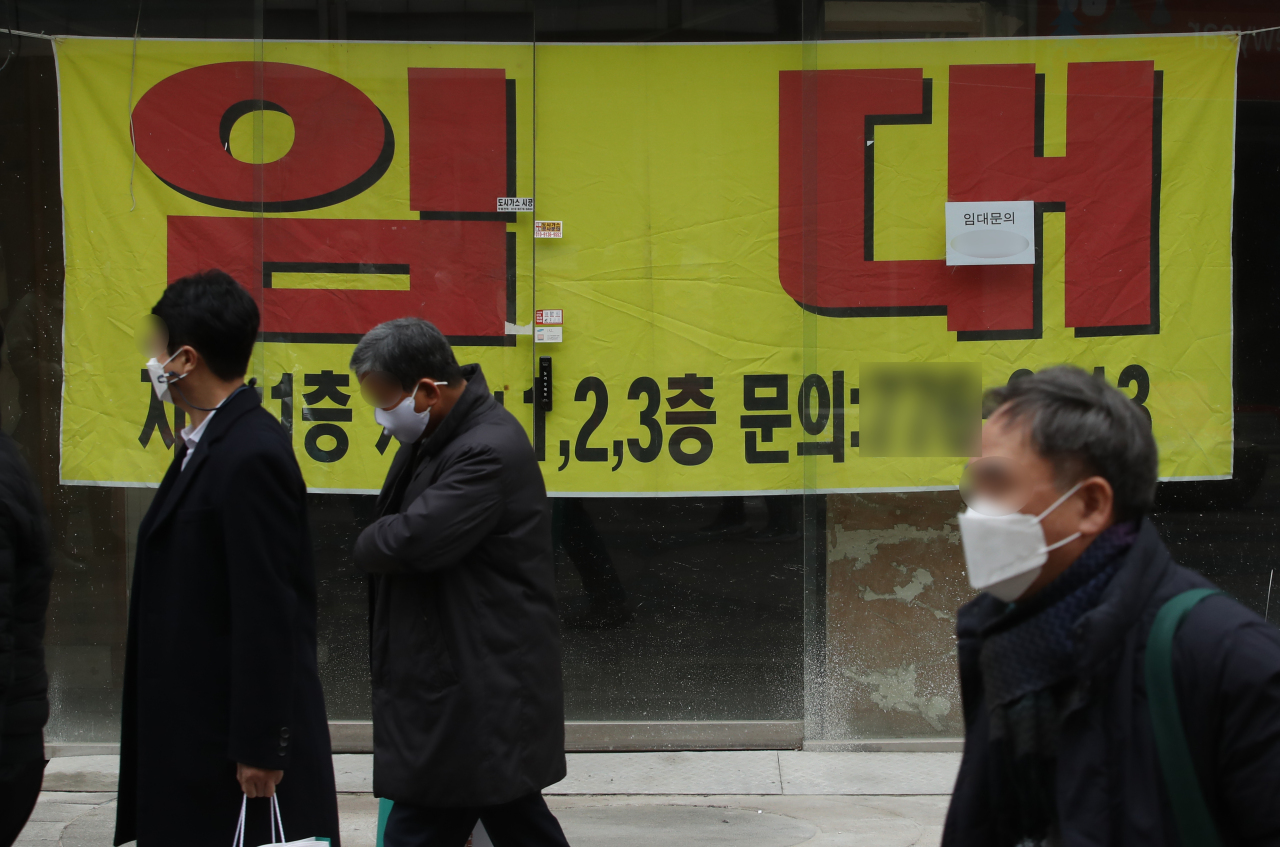 |
This photo, taken Wednesday, shows a for lease sign put up at a store in the shopping district of Myeongdong. (Yonhap). |
The South Korean economy faces heightened downside risks, as the country has tightened antivirus measures to curb the spread of COVID-19 cases and the global economic recovery has slowed down, a state-run think tank said Sunday.
Since December, the recovery of private spending has been constrained by tighter social distancing measures to tackle the spike in COVID-19 infections, the Korea Development Institute (KDI) said in a monthly economic assessment report.
"On the external side, global supply chain disruptions and monetary policy shifts by major economies are expected to work as downside risks for the South Korean economy," the report said.
The upsurge in virus cases and the fast spread of the omicron variant are upping the economic uncertainty of Asia's fourth-largest economy.
South Korea relaxed virus curbs in November under the "living with COVID-19" scheme in an effort to gradually return to pre-pandemic life.
But it tightened virus curbs on Dec. 18, including lowering the cap of private gatherings to four people and restoring the 9 p.m. curfews on business hours at restaurants and cafes. The government extended the social distancing rules for two weeks through Jan. 16.
Private spending gained ground amid the vaccine rollout and the economic recovery, but its recovery appears to be hampered by the virus situation.
Private spending contracted 0.2 percent in the third quarter, compared with a 3.6 percent on-quarter gain three months earlier, according to central bank data.
Uncertainty about monetary policy normalization by the Federal Reserve is also serving as a major risk for the Korean economy.
The Korean currency fell to the 1,200-won level per the US dollar Thursday for the first time since July 24, 2020, due to the prospect for the Fed's faster monetary policy tightening.
Minutes of the Fed's rate-setting meeting in December signaled the US central bank may hike its policy rate at an earlier and faster-than-expected pace amid a strong economic recovery and high inflation.
The Bank of Korea expects the South Korean economy to increase 3 percent this year after the estimated 4 percent growth last year. The finance ministry puts its 2022 economic growth outlook at 3.1 percent. (Yonhap)








